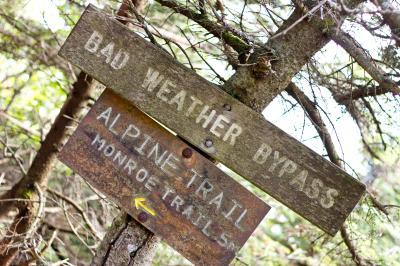The quirky, tiny state of Vermont is 600,000 people who are simultaneously hard left and hard right. They voted in Bernie Sanders as a Senator, a guy who won't be a Democrat because that party is not socialist enough for him. They passed a law that put warning labels on GMOs - except for those in alcohol, restaurants, delis and cow feed, and thus basically only impacting poor people.
Now they have turned their keen, evidence-based eyes on climate change, claiming that if something isn't done, their skiing will be gone in 25 years, Maple syrup too, and heat stress will mean less milk for cows.
How is Vermont being so disproportionately affected? They didn't do any research, they used projections from the Obama administration's National Climate Assessment and "downscaled" those estimates of global climate models and mixed them them with local knowledge and anecdotes.
The new Vermont assessment says there will be more intense storms, an 80% increase in the likelihood of flooding, and increased droughts. The assessment was written by Vermont environmental activists, farmers, businesspeople, some meteorologists and even a few local academics. It used data like apple farmers' records of tree blooms going back into the 1960s, and the ice-out date on Vermont's famed Joe's Pond.

From left to right; Kristin Underwood, water resources; Sam Carlson, tourism; Elizabeth Palchak, energy; Julie Nash, agriculture and food systems. Photo: Sally McCay
"The climate has already changed substantially in Vermont," said Gillian Galford, an environmentalist at the University of Vermont's Gund Institute for Ecological Economics and the lead author of the paper, "Spring is coming seven days earlier across the state—and that has happened in just the last three decades."
Joe's Pond has the evidence they need. It's melting date is a topic of annual speculation but they determined its average - the recent average, anyway - has gotten earlier. "As a scientist, the Joe's Pond ice-out date makes a beautiful trend, as a person, I find it tragic that our climate is changing this rapidly," says Galford.
Outside projections, doesn't the actual increased precipitation in Vermont mean skiing is better? They acknowledge they are in a temporary climate change "sweet spot", which means more snow in the next two or three decades. But, "winter precipitation will shift to rain in the next fifty years," Galford believes, as they say the state's average temperature is projected to increase by more than five degrees Fahrenheit by 2100.

Five degrees? Where did they come up with that? It wasn't science, it was just taking an unknown accuracy average temperature from decades ago and estimating a future one. Suspect methodology leads them to be able to create "Global Warming Happens, Vermont Impacted Most" headlines.
Will this catch on? No other states have really tried to claim a numerical basis for its local weather due to global climate change. But if it gets Vermont a lot more federal funding to combat the problem, it might be a new trend.
It just won't be science.




Comments